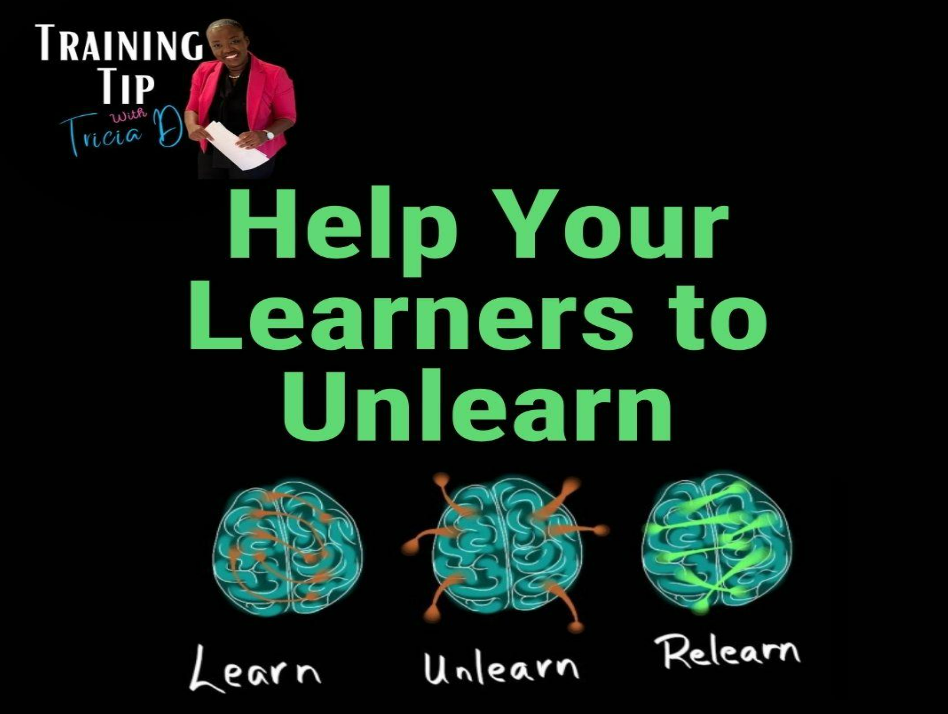One of the main threats to learning and development is our resistance to unlearning.
Until people are willing to unlearn, they will not be ready or able to absorb new information being presented. This resistance is particularly pronounced in adults, who bring a wealth of prior knowledge and experiences to any learning environment. While these experiences can support new learning, they can just as easily hinder it.
Adults often find themselves reluctant to let go of established knowledge for several reasons:
- Their current knowledge has served them well:
People tend to trust what has worked for them in the past, so abandoning proven methods can feel risky and unnecessary.
- Fear of starting over:
Learning something new can feel like starting from scratch, which is daunting. For experts, this can also mean relinquishing their status and power.
- Perceived irrelevance:
Some learners simply do not see the need to unlearn, as they may not recognise the value of the new information or skills being introduced.
In situations where unlearning is essential, you must first help learners become willing to let go of some of what they know. Here are some strategies to help with the process:
- Highlight the Potential Risks of Not Changing:
Encourage learners to consider the potential risks of continuing with their current knowledge and practices. This can create a sense of urgency and openness to change.
- Explain the Reasons and Benefits of the New Learning:
Discuss the reasons for the new information or skill and emphasise the benefits to both the individual and the organisation. This helps in building a compelling case for why unlearning is necessary. Learners who see personal and professional gains are more likely to engage.
- Acknowledge the Challenge:
Let learners know that, like any new learning, the process may be challenging at first. However, reassure learners that with practice, they will achieve mastery. Normalising the difficulty of unlearning and relearning helps mitigate fear and resistance.
- Create a Safe Learning Environment.
Provide a psychologically and emotionally safe environment where learners feel comfortable making mistakes without fear of ridicule. A supportive atmosphere fosters openness and experimentation.
Importantly, as you guide others through the process of learning, unlearning, and relearning, remember to also undergo this process yourself. Continuous personal development is essential for staying relevant and effective in facilitating others’ growth.
Addressing the barriers to unlearning and creating supportive conditions for change can enhance the effectiveness of learning and development initiatives. This approach benefits individual learners and enhances organisational growth and innovation.
……………
About the author:
Tricia is the Managing Director of ELP Solutions. She is a Corporate Trainer, Trainer of Trainers, Facilitator, HR & OD Consultant, Adjunct Lecturer, Speaker, and Event Host with over two decades of combined experience in helping individuals & organisations achieve their goals.



